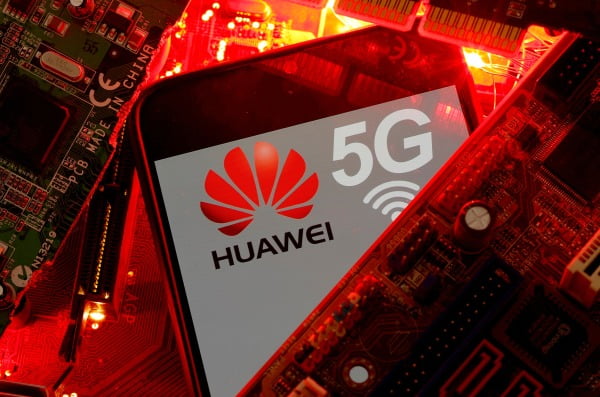
Photo = REUTERS
As Joe Biden was officially inaugurated as the 46th President of the United States on the 20th (local time), the domestic industry is struggling to analyze the gains and losses of interest and prepare strategies for the trade policy that the Biden administration will take.
One of the areas that draws the most attention to the foreign policy of the Biden administration is the’China’ policy. Conflicts between the US and China, the two largest exporters of South Korea, continue to rise as a result of former President Donald Trump’s strong stance against China, as this could lead to trade problems and damage the Korean economy.
Experts predict that the Biden administration will continue its solid posture as before, contrary to some expectations that the Biden administration will implement a policy of appeasement in China. In fact, several times, Finance Minister Janet Yellon and Secretary of State Tony Blincoln, who will lead the Biden administration in the early stages, announced several times that they will continue to strengthen the public stance through remarks such as “China is America’s Most Important Challenge” at a confirmation hearing held the previous day. have.
However, President Biden’s approach seems to be somewhat different from that of former President Trump, such as imposing high tariffs. It is analyzed that it will choose to strengthen solidarity, such as restoring the cooperation system with the existing allies. An official from the Korea International Trade Association explained, “It seems likely that the Biden administration will establish an Asia-Pacific strategy to establish an allied front among allied nations related to trade, investment, technology, and supply chain to check China.”

US President Biden gives a speech after taking an oath at an inauguration ceremony held at the Capitol in Washington, DC on the 20th (local time). Photo = REUTERS
Likewise, if President Biden continues to maintain a strong stance against China, opportunities and threats will exist for each industry.(86,800 -0.46%)In the domestic information technology (IT) sector, such as domestic smartphones and 5G communications (5G), which were led by Huawei, we expect a return effect from Huawei’s sanctions.
Huawei, which is struggling with all-round US sanctions, is expected to see a sharp decline in the smartphone business this year. According to the market research firm Trend Force, Huawei’s smartphone shipments this year are expected to drop to 45 million units. Last year, it shipped 170 million units. This is a sharp drop to number 7 in the global market. Huawei’s shipment decline is expected to be shared by competitors. It is predicted that Samsung Electronics will be ranked No. 1 by shipping 267 million units.
On the other hand, Huawei is still a strong player in the 5G equipment market. It is increasing investment in China against US sanctions. According to market researcher Del Oro, Huawei had a 28% market share in the global telecommunications equipment market as of the end of 2019, but its share from the first to third quarters of last year increased by 2 percentage points (P) to 30%.
However, it is unclear whether Huawei will continue to play solo. This is because President Biden has announced that he will continue the stance of former President Trump, who has blocked Chinese companies from entering the US. The US is currently ranked as the largest market in the 5G field.

The inauguration ceremony of 46th President Joe Biden is being held on the outdoor stage in front of the US Capitol in Washington DC on the 20th (local time)/Photo = EPA
In particular, the investment of approximately 335 trillion won (300 billion dollars) worth of new research and development (R&D) funds to artificial intelligence (AI), quantum and high-performance computing, 5G/6G, new materials, clean energy, semiconductors, etc. The analysis is that the infrastructure investment policy of about 2,200 trillion won ($2 trillion), as the main point, will also serve as a positive for Samsung Electronics’ 5G business in the US.
In the semiconductor sector, which accounts for about 20% of domestic exports, a complex scenario is drawn. Samsung Electronics and SK Hynix continue to be regulated by Huawei in the US(131,500 +0.77%) From the standpoint, the short-term burden is expected to continue in the semiconductor hegemony war between the US and China, as new orders become difficult. However, from a long-term perspective, there are also positive factors, such as diversification of manufacturers and sanctions for SMIC, China’s largest foundry (semiconductor commissioned production) company.
In particular, it is noteworthy that the Biden government is highly likely to request domestic semiconductor companies for new investments in the US and direct alliances with US companies. It is an analysis that the’convergence of cooperation’ in which the US, where most of the companies specialized in semiconductor design such as Qualcomm and Ndvia, are leaving relatively weak production fields to Taiwan or Korea, will accelerate than before. It is the same that TSMC, the number one global foundry, expanded its large-scale factory in the United States last September.
This argument is also supported by the fact that the core of Biden’s government’s economic policy’Bidenomics’ is’by American’, which promotes the purchase of domestically produced products. “The state-of-the-art semiconductor is a key component in various fields such as stealth fighters, air traffic control, and guided missiles,” said the US semiconductor magazine, Semiconductor Engineering. “The US will have to establish a semiconductor alliance with Korea and Taiwan.”
Seongsu Bae, reporter Hankyung.com [email protected]
